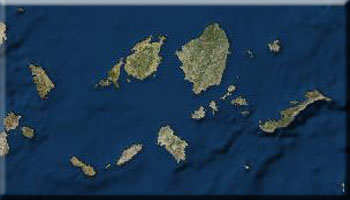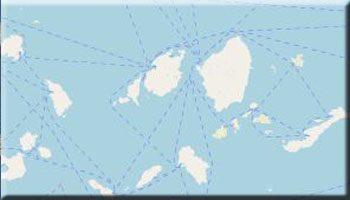Tradition has been weakened as a result of development, yet a number of customs survive. The island's folklore element is most evident during religious feasts to which many customs and traditions are linked.
On New Year's Day, locals put "best foot forward" for luck as they visit hopes to wish good fortune, while families cut and share the traditional pitta in which a coin has been baked; the person whose piece has the coin is said to be blessed with good luck for the coming year.
Epiphany is observed with flair around the island as on the eve of the holiday priests go door to door to bless each home. This is followed by church services, after which locals meet at the harbor. There, a cross is tossed into the water and male bathers vie to retrieve it.
Apokries or carnival is a time of revelry. Masqueraders roam the streets, amusing onlookers with their costumes and antics.
This is followed by Kathara Deftera or Clean Monday, the first day of Lent. In the days leading up to Easter, locals spruce up their houses, applying whitewash and baking breads in the shapes of human figures, or Lazarakia. Holy Week is observed with devotion.
The Epitaphios is led in candlelit procession on Good Friday, while the observances culminate at midnight on Saturday with the resurrection service. Starting early in the day on Easter Sunday, locals eat and celebrate around the island, congregating in the main square in the afternoon to burn Judas in effigy. Most religious feasts are observed with a paniyiri, a religious and folk festival.


















